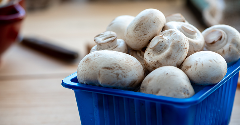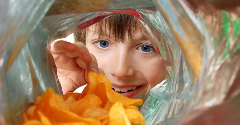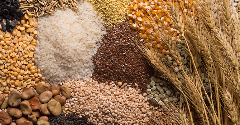News
Kombucha Brewers International releases code of practice to standardize kombucha
3 Aug 2020U.S. kombucha trade association Kombucha Brewers International (KBI) established a code of practice that outlines the quality standards for the production of this fermented beverage. The trade group is also working on releasing a seal for manufacturers looking to identify their kombucha as “authentic.”
This standardized code requires that kombucha be made with only tea leaves, natural sweeteners, water and Symbiotic Culture of Bacteria and Yeast (SCOBY). As many of kombucha brands sweeten their drinks, flavoring is allowed under the guidelines but may not exceed 20% of the finished products.

Of course there are plenty of other kombucha drinks that are made without the use of tea leaves and the code of practice provides provisions for them. While fermented beverages made with herbs, coffee, honey or yerba mate are not considered “traditional kombucha,” they may use the term “kombucha” with a qualifying adjective.
There is a special category called “Processed Kombucha,” which is defined as “any type of kombucha to which a process has been applied to the product outside the traditional manufacturing process. Examples include pasteurization, dealcoholization, filtration, filter sterilization or any other process that changes the nature of traditional kombucha.”
Distinguishing this category is an important change within the kombucha industry that has been beset by lawsuits in recent years. Questions about alcohol content in these fermented tea beverages have resulted in a slew of class action legal cases against companies, including Health-Ade and Brew Dr. To try and correct the alcohol levels in these beverages, which many times results from prolonged fermentation in a bottle, some manufactures have relied on heat treatments and filtering to slow the transformation of sugar into ethanol.
Other manufacturers are lobbying to raise the allowable alcohol content from 0.5% to 1.25% in order to provide a larger buffer for the development of alcohol while kombucha remains on the shelf. In the KBI code of practice, the alcohol level is established at between 0% and 3.2%.
Through standardizing the definition of kombucha, this code of practice is attempting to bridge this division in approaches and "create a food safety and quality standard for kombucha producers that creates transparency for consumers to make informed choices.” However, not all manufacturers believe this approach is beneficial.
“Unfortunately, these definitions are being manipulated to protect producers that are funding KBI to lobby for regulation changes that would bring the legal non-alcoholic threshold of kombucha to 1.2%. They are a way to distinguish brands from one another and are not aimed at customer protection whatsoever,” Aqua ViTea founder Jeff Weaber told Ingredients Network in a statement.
However, having the ability to clearly define this beverage and offer an official label has the ability to go a long way in giving consumers confidence in these products, whose popularity has grown rapidly. The kombucha market is anticipated to reach $7 billion by 2027 with a compound annual growth rate of 19.7%, according to Grand View Research.
Related news

Is the price of a sustainable and healthy diet… unsustainable?
4 Mar 2025
Healthier foods are more than twice as expensive per calorie as less healthy foods, with healthier food increasing in price at twice the rate in the past two years.
Read more
Does calorie labelling lead to reduced consumption?
27 Feb 2025
Calorie labelling of food products leads to a small, but consistent, reduction in the number of calories consumed, a study suggests.
Read more
Brands, retailers, and countries remain divided over Nutri-Score labels
30 Jan 2025
Europe's supermarkets and manufacturers are far from aligned over a standarised approach to nutrition labelling. Some welcome the non-mandatory Nutri-Score labels with open arms, while others have “considerable concerns”.
Read more
EU Parliament passes stricter packaging rules
20 Jan 2025
The European Parliament voted to approve updates to the packaging and packaging waste regulation, including enforceable re-use targets, limits on certain single-use packaging types, and restrictions on the use of PFAS “forever chemicals”.
Read more
Louis Drefyus Company powers on in plant-based with BASF ingredients acquisition
17 Jan 2025
BASF has agreed to sell its food and health performance ingredients business to Louis Dreyfus Company (LDC).
Read more
Major Belgian retailers promise standardised, reusable packaging at scale
16 Jan 2025
Albert Heijn, Aldi, Carrefour, Colruyt, Delhaize, and Lidl have launched a new reusable packaging coalition that aims to accelerate the use of reusable packaging, starting with mushrooms.
Read more
Kraft Heinz, Mondelēz, Coca-Cola, and Nestlé accused of marketing ‘addictive’ UPFs at children
15 Jan 2025
Major food manufacturers have been hit with a first-of-its-kind lawsuit alleging that they specifically engineer their ultra-processed foods (UPFs) to be addictive, and that they market the products towards children.
Read more
FDA reviews red food colour additive, Red No.3
9 Jan 2025
Amid considerations to tighten regulations around artificial ingredients, the US Food and Drug Administration (FDA) is exploring a potential ban on particular type of red food dye.
Read more
Sperri builds investment momentum with US expansion plans
7 Jan 2025
Hailed as Canada’s first organic and allergen-free plant-based meal replacement drink, food-as-medicine brand Sperri progresses its efforts to enter the US market.
Read more
Is it time for a global definition of whole grain?
30 Dec 2024
Amid a lack of harmonisation, the European Food Information Council (EUFIC) is calling for a global definition of the term whole grain to end consumer confusion.
Read more